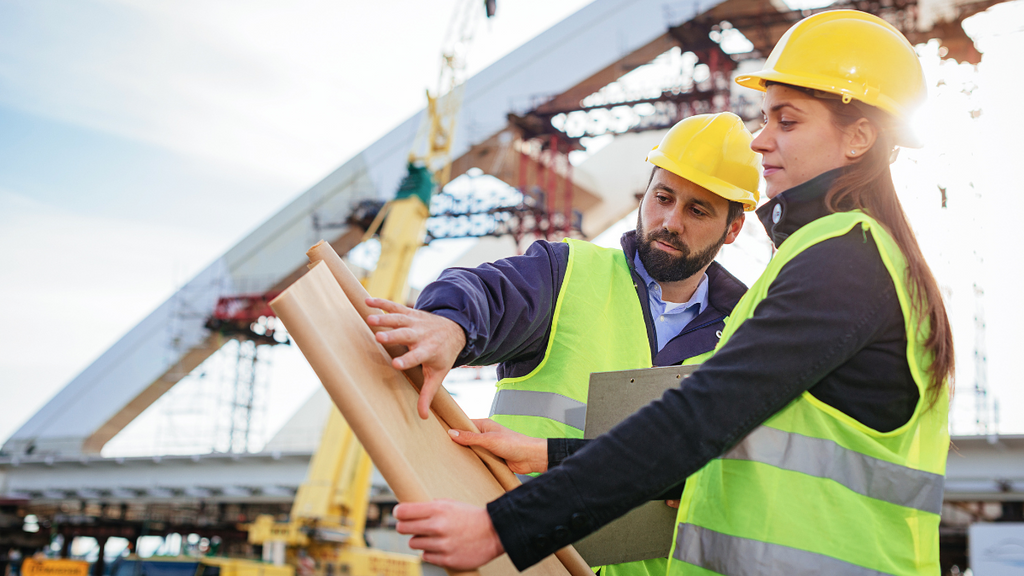The 9-Minute Rule for Geotheta
Wiki Article
The 10-Second Trick For Geotheta
Table of ContentsThe 8-Second Trick For GeothetaGeotheta Things To Know Before You Get This9 Simple Techniques For GeothetaTop Guidelines Of GeothetaA Biased View of Geotheta

They carry out website examinations, collect samples, perform research laboratory tests, and assess data to examine the viability of the ground for construction jobs - Tailings Engineer. Based upon their searchings for, geotechnical designers give referrals for foundation layout, slope security, retaining structures, and reduction of geotechnical dangers. They work together with other professionals, such as architects, architectural designers, and building and construction teams, to make sure that geotechnical considerations are integrated into the general job layout and application
By examining the actions and residential or commercial properties of dirt and rock, they can identify potential geotechnical hazards such as landslides, soil negotiation, or incline instability. Their knowledge assists stop failures or accidents that might endanger lives and residential or commercial property. Here are some detailed duties and obligations of a geotechnical engineer: Site Investigation: Geotechnical engineers conduct site investigations to gather information on subsurface conditions.
They translate the information to comprehend the residential properties and habits of the dirt and rock, including their toughness, permeability, compaction attributes, and groundwater conditions. Geotechnical Evaluation and Style: Geotechnical engineers examine the information collected throughout website investigations to assess the security and suitability of the website for building and construction tasks. They perform geotechnical calculations and modeling to review elements such as bearing capability, settlement, slope security, lateral planet pressures, and groundwater circulation.
Geotheta Things To Know Before You Buy
Foundation Style: Geotechnical designers play an important function in creating structures that can safely support the intended framework. They assess the dirt problems and load demands to establish the proper structure type, such as shallow foundations (e.g., footings), deep foundations (e.g (https://soundcloud.com/geotheta)., stacks), or specialized methods like soil enhancement. They think about factors such as settlement restrictions, bearing capacity, and soil-structure communication to create optimum foundation designsThey assess building and construction plans, monitor website activities, and conduct field examinations to confirm that the design recommendations are adhered to. If unanticipated geotechnical issues arise, they analyze the circumstance and offer recommendations for removal or modifications to the design. Danger Assessment and Reduction: Geotechnical designers assess geotechnical threats and dangers connected with the job site, such as landslides, liquefaction, or dirt erosion.

Partnership and Communication: Geotechnical engineers work closely with other professionals associated with a project, such as architects, structural designers, and building and construction teams. Efficient communication and cooperation are important to integrate geotechnical factors to consider into the total job design and building and construction process. Geotechnical designers offer technological know-how, answer inquiries, and ensure that geotechnical demands are met.
The 6-Minute Rule for Geotheta
Right here are some sorts of geotechnical engineers: Foundation Engineer: Foundation designers specialize in creating and analyzing foundations for frameworks. They examine the dirt problems, tons demands, and site characteristics to figure out the most ideal structure kind and style, such as shallow structures, deep foundations, or specialized methods like pile foundations.They assess the aspects affecting slope security, such as soil residential or commercial properties, groundwater problems, and slope geometry, and create techniques to stop slope failures and minimize dangers. Quake Designer: Earthquake engineers concentrate on examining and making structures to endure seismic pressures. They assess the seismic risk of a website, evaluate dirt liquefaction potential, and create seismic layout standards to make sure the safety and security and durability of structures during quakes.
They execute area testing, collect samples, and analyze the accumulated data to characterize the soil buildings, geologic formations, and groundwater conditions at a website. Geotechnical Instrumentation Designer: Geotechnical instrumentation engineers focus on monitoring and gauging the habits of soil, rock, and frameworks. They mount and preserve instrumentation systems that monitor variables such as dirt negotiation, groundwater levels, incline motions, and architectural displacements to evaluate efficiency and offer very early warnings of potential concerns.
Some Known Facts About Geotheta.
They perform tests such as triaxial examinations, combination tests, straight shear tests, and leaks in the structure examinations to gather data for geotechnical analysis and style. Geosynthetics Engineer: Geosynthetics engineers concentrate on the design and application of geosynthetic products, such as geotextiles, geogrids, and geomembranes. They make use of these materials to boost soil stability, strengthen inclines, offer drain solutions, and control erosion.They have a tendency to be investigatory people, which implies they're intellectual, introspective, and investigative. They wonder, systematic, reasonable, logical, and logical. A few of them are additionally social, meaning they're kind, generous, cooperative, patient, caring, helpful, empathetic, skillful, and pleasant. Does this seem like you? Take our free profession test to discover out if geotechnical designer is among your leading job matches.
In the workplace setting, geotechnical designers use specialized software application tools to carry out calculations, create layouts, and assess information. They prepare reports, testimonial job requirements, interact with customers and staff member, and coordinate job tasks. The workplace setting offers a conducive environment for study, analysis, and partnership with various other specialists associated with the job.
The smart Trick of Geotheta That Nobody is Discussing
They often visit project sites to conduct site examinations, evaluate geotechnical problems, and gather information for evaluation. These sees involve taking a trip to various locations, often in remote or challenging terrains. Geotechnical designers may do dirt sampling, conduct tests, and display construction activities to make certain that the geotechnical aspects of the job are being implemented properly.Geotechnical designers also work in specialized geotechnical research laboratories. In these facilities, they carry out experiments, carry out tests on dirt and rock samples, and assess the engineering properties of the materials. Geotechnical lab engineers work thoroughly in these environments, handling testing devices, running instruments, and recording information. They team up with various other lab personnel blog to guarantee precise and reliable testing results.
Report this wiki page